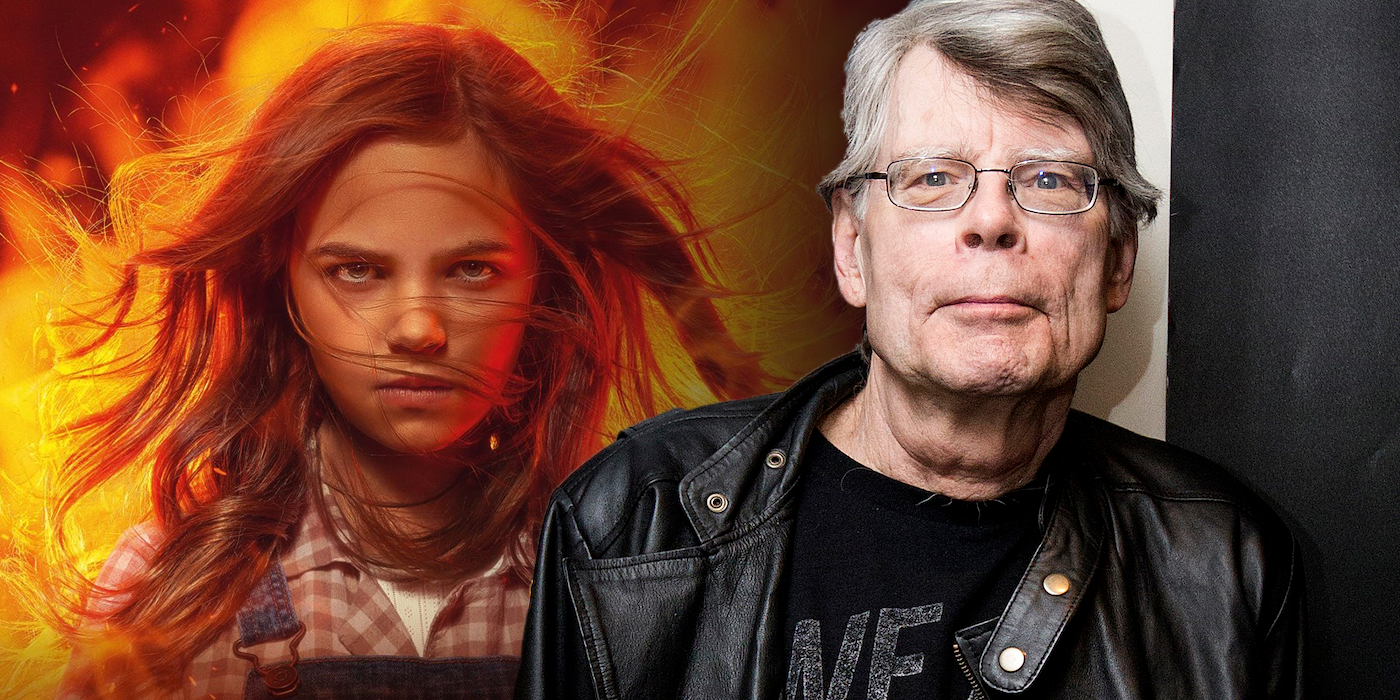
Why So Many Stephen King Adaptations Fail (Like Firestarter)
Despite there being some great adaptations of his work, so many Stephen King adaptations have failed (like the recent Firestarter), for one overwhelming reason. Stephen King is inarguably the most prolific writer of modern times. Unsurprisingly, his vast body of work has also made him the writer whose works have been adapted more than any other currently living writer, and the second-place writer is well in the rearview mirror.
Unfortunately, the most recent adaptation of his work failed to impress. Firestarter isn’t the worst Stephen King adaptation, nor is it the first to profoundly misunderstand what makes his stories work. There have certainly been some great King adaptations, such as Frank Darabont’s The Mist or Andy Muschietti’s IT, but a great many more miss the mark, failing to grasp the core idea at the heart of all of his work. The focus is always put on the wrong theme and the result is usually underwhelming.
What so many Stephen King adaptations don’t get is that it’s not about the monsters–it’s about how everyday people respond to the monsters. Firestarter, like so many others, eschewed the central human dynamic at the heart of the story in favor of focusing on the horror, resulting in a tonal mess that didn’t know if it wanted to be a family drama or a throwback ’80s horror movie. What makes King’s stories resonate isn’t the horror itself, but that it happens to normal people simply living their lives. It happens in small towns, to boring families, to regular people. Plucky kids, conflicted priests, and troubled writers in tiny, rural places litter the pages of his stories and it’s them that make his stories so compelling, not the monsters. A Stephen King story always underscores that the terrible things that befall his characters could happen to anyone. Flawed, complex, working-class Stephen King characters figuring out how to tackle horrors beyond the scope of their imaginations–or capacity for sanity–is what gets under a reader’s skin.

The horror of King doesn’t hit one over the head with blatant jump scares. Instead, it sneaks up on his characters (and the reader) slowly and steadily, a creeping dread that feels inexorable. Admittedly, Stephen King’s work can be surprisingly tricky to adapt to a visual medium while keeping the core of it intact as so much of his stories unfold as existential, internal terror. Too many writers and directors of Stephen King movies and TV adaptations misunderstand this. They go right for the external and stay there, relying on surface-level, obvious horror to tell the story. Rather than building up the internal conflict each character feels, the Stephen King horror adaptations that fail usually go straight for jump scares, gore, and creature effects. In King’s books, however, the monsters have always been secondary to the human characters.
The fundamental way that Stephen King views terror can be summed up by a line in The Shining: “Monsters are real, and ghosts are real too. They live inside of us, and sometimes, they win.” The best directors to adapt Stephen King, such as Frank Darabont, Mike Flanagan, and Andy Muschietti, understand this. The humans are the most interesting part of his stories, haunted as they are by their pasts, their traumas, their internal struggles. The greatest challenge King’s characters face is grappling with the metaphorical monsters that live inside them, not the very literal monsters outside; “The Jaunt,” considered Stephen King’s scariest short story by legions of readers, has no monster at all.
Perhaps it’s that the author’s nickname of “the King of Horror” has misled so many to focus solely on the horror and nothing else when adapting his books. But while that sobriquet may have suited King in the beginning, it’s certainly one that he’s outgrown in the decades since, proving himself to be just as adept at a number of other genres as horror. But the humanistic element has anchored all of his work from the start; what has made him so resonant over the years are the reflective passages that get at the heart of human nature in between the scares. Sadly, Firestarter is just one more example of a Stephen King horror adaptation that failed to understand the most important stuff in his work.














